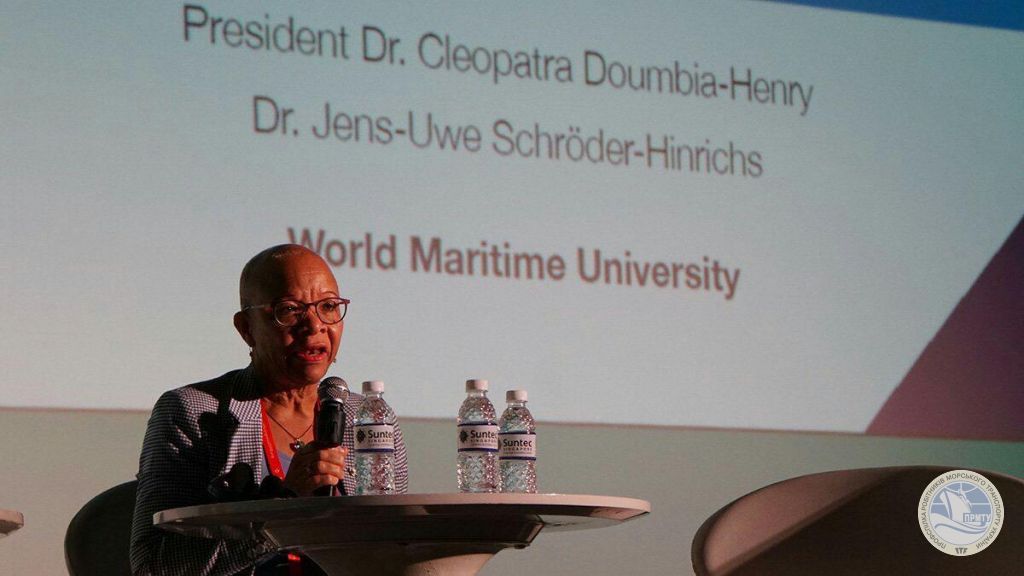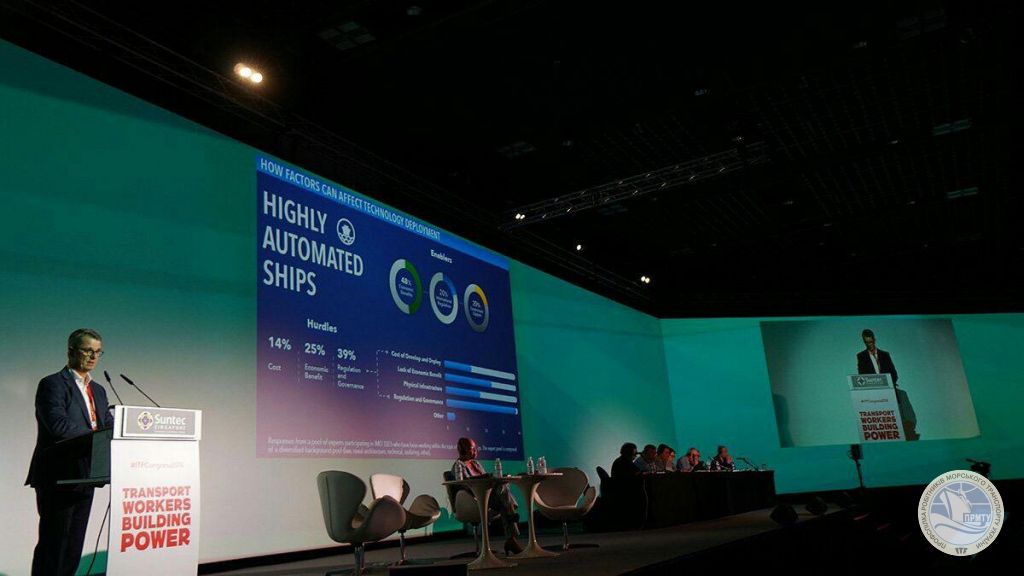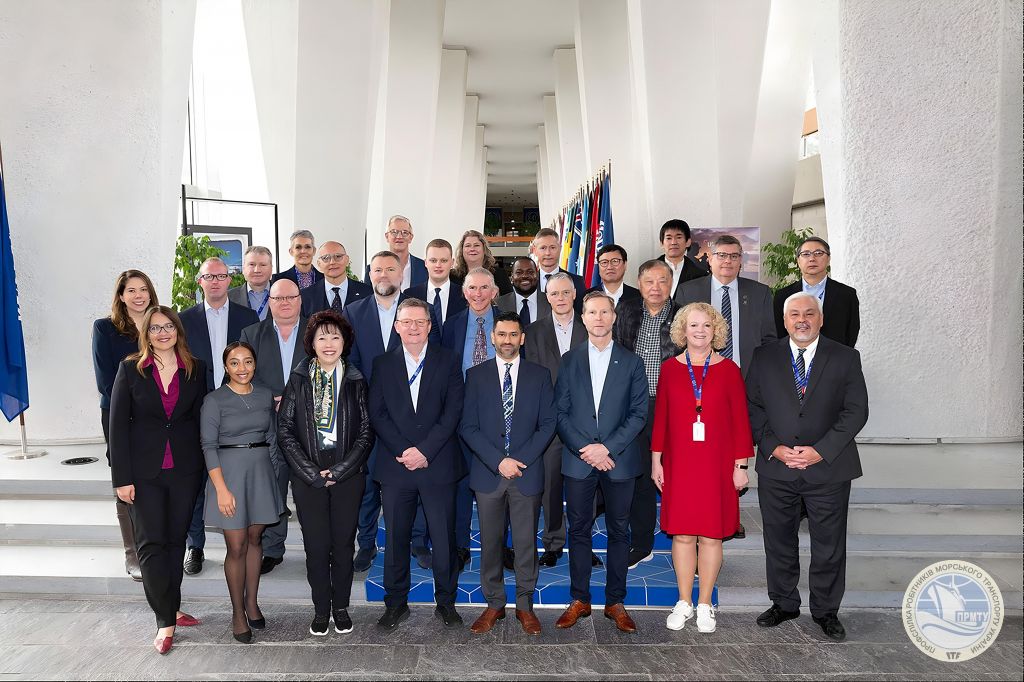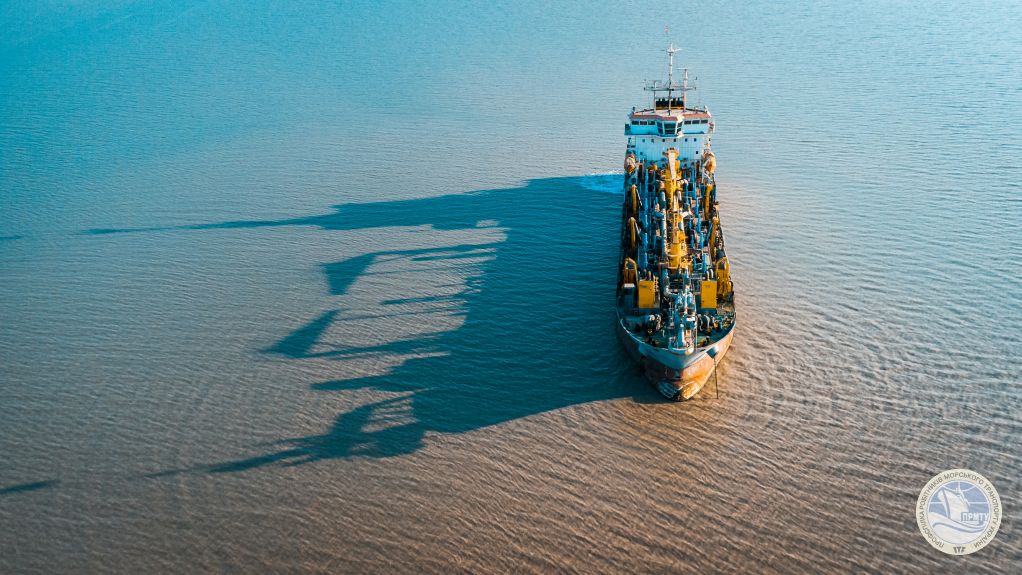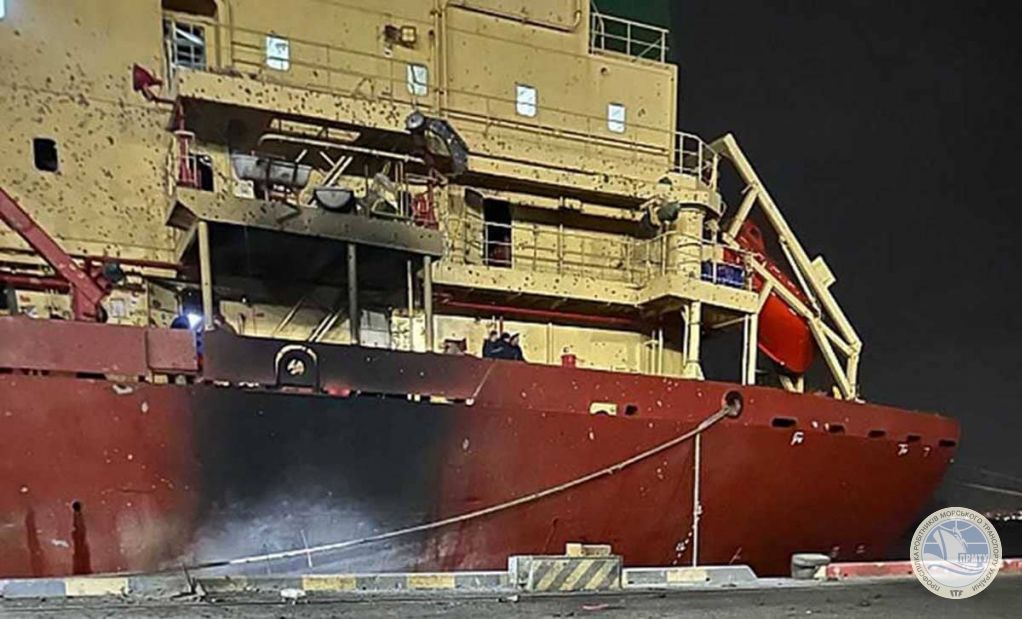On October 15, in the framework of the 44th ITF Congress, a conference of the ITF Marine section was held, where actual problems that seafarers face or will face in the nearest future have been discussed. Of course, the main attention was focused on the issues of automation and the consequences of rapid development of technology.
A study, conducted by the World Maritime University (WMU) together with the ITF, was presented at the Conference. President of WMU Cleopatra Doumbia-Henry, who previously worked at the International Labor Organization and was the ideologist for the MLC, 2006 creation, noted that technology is the aspect of our life we can't avoid, so maritime education needs to keep up with time and be prepared for the affection of automation on maritime workers.
Jacqueline Smith, ITF Maritime Coordinator, told about the priorities of work for the Maritime Section of the Federation, among which she highlighted three areas: growth and activation of quantity, innovation campaigns and global®ional policies.
Moreover, speaking about the growth and activation of quantity, Mrs. Smith paid attention to the advancement of women-seafarers and young seafarers. She also noted the importance of investing in the development of seafarers' skills, which will open up new opportunities for them on board and ashore, considering the rapid development of autonomous shipping. Thus, the WMA study shows that by 2040 the number of vessels controlled by artificial mind will increase to 15%.
Within the framework of the ITF Marine Section Conference, each trade union got the opportunity to make its proposals regarding the Section's work areas. MTWTU brought in two proposals, which were voiced by Oleg Grygoriuk, First Vice Chairman of MTWTU. MTWTU proposals touched upon the implementation of bilateral relations in interaction of national trade unions aimed to represent the interests of its members, as well as uphold the rights of young seafarers and port workers.
